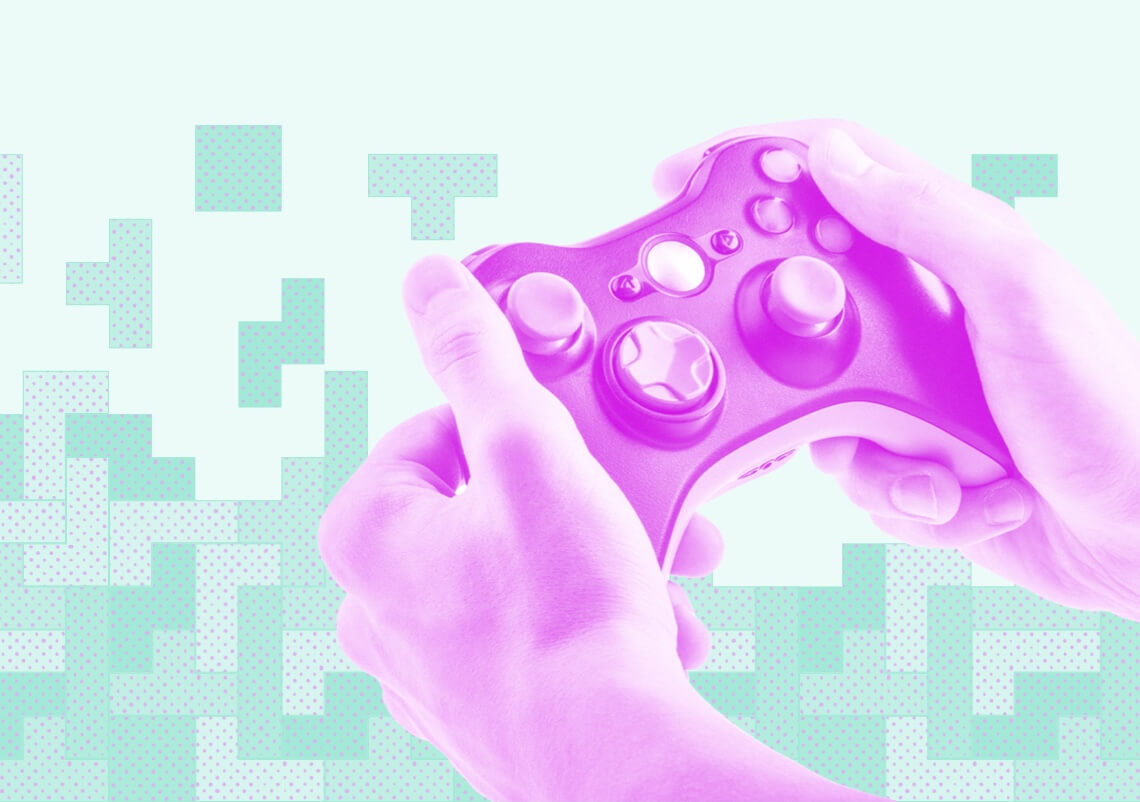For many of us, video games are a way of life. The feeling of excitement, satisfaction, and the sentiment of accomplishment when beating that unbeatable level is enough to trigger your brain to want more. But for our parents, it’s nothing but a FastPass™ to a corrupt brain and low grades in school.
This begs the question – Do video games actually corrupt the mind, or can they be a valuable complement to our learning ability?
We all wondered about this question at least once or twice when we procrastinated on our homework with a “quick” game of Angry Birds. Below, you can find valuable benefits of playing video games and the types of video games to play to make the most out of your schooling.
Forming a better memory
Video games have become one of today’s most popular hobbies in practically every household. Unfortunately, the negative effects of gaming still live rent-free in the mind of the parents who watch their kids spend hours with a console.
A recent study from the Universitat Oberta de Catalunya in Barcelona found that gaming can induce structural changes in parts of the brain that are associated with function and spatial memory. In other words, people who played video games as kids showed more significant growth in their working memory than those who opted out, suggesting that video games can have long-lasting benefits for cognition.

Why? By playing video games at a young age and exploring the digital world while completing goals within the game, you’re training the hippocampus (a part of the brain that turns short-term memory into long term memory) by constantly updating the brain with new tasks and updates on objectives; thus, keeping the hippocampus in great shape. With a more vital hippocampus, you’re exercising the brain to help you better remember and recall past events through long term memory.
The Benefits of Playing Video Games
If you’re an avid gamer, playing video games can improve your learning ability. Below are four specific ways gaming can help you be better academically.
1. Improved Technical Skills
It has been shown that playing video games is closely tied to computer skills; therefore, students can learn the use of modern technology much quicker if they play. For example, two-year-old children who participate in developmental video games are more competent when it comes to adopting new technologies compared to those of older generations.
2. Cooperation and Teamwork
Tons of modern games rely on online multiplayer teamwork. Based on a study in 2017 by the International Journal of Humanities and Social Sciences Research, researchers found that multiplayer games can increase cooperation. Why? Playing games with others allows students to think as a team rather than individually, creating an atmosphere where students can be united by a shared goal rather than individual thinking.
3. Attention to Detail
Quests in games often add to the development of attention to detail. With complex storylines and hidden easter eggs, focusing on more information is essential to in-game discoveries. Students who practice in-game observations are more likely to gain a better sense of acquiring new information.
4. Positive Effect on Cognitive and Social Health
A study done by Columbia University’s Mailman School of Public Health found a connection between playing video games and the student’s cognitive and social health. Researchers observed that those who play video games constantly had increased odds of high intellectual functioning and fewer issues with their classmates—proving video games as a reliable collaboration tool for those in school.
4 Types of video games to play
Not all games are created equal in developing your cognitive mind. With an overwhelming amount of video games out there, only a few can help improve your learning ability. So what should you play?
1. Strategy Games
Playing a strategy game pushes your brain to strategize and manage logistics. When playing a strategy game like Starcraft, players have to think on their feet to change tactics when something unexpected happens, just like in real life. These strategy games require players to make fast analyses and quick decisions, sometimes without 100% of the information, thus, improving the player’s cognitive skills, including working memory and reasoning.
2. Role-Playing Games
In an RPG, you take part in a fictional world as a character where making a decision can impact you positively or negatively later on. Playing RPGs like The Elder Scrolls or Diablo will allow players to make fast decisions with many deep variables, thus, exercising the player’s reasoning skill or the ability to think about hypothesis-testing, which is fundamental to learning.
3. Simulation Games
Playing simulation games that mimic the real world like City Skylines, Microsoft Flight Simulator, or The Sims is a great way to learn about real-world skills. These games are great for players to learn about management decision skills, such as using and managing a finite resource to keep the city running.
4. Action Adventure
Action and adventure games like Minecraft are fast-paced games that engage your reflexes and problem-solving in a quick burst of time. Depending on which action-adventure game you’re playing, you’ll learn how to take risks, solve problems, think strategically, and teamwork.
Conclusion
Although playing video games can help in your ability to learn and work with your peers, it is essential to do it in moderation. If the game can help you attain new skills, it’s a great tool in aiding you in class. But this doesn’t mean it’s ok to play all day; game-based learning has its pros and cons.
The goal is to find a work-life balance with video games. Play to have fun, reduce stress, and immerse yourself in a world of challenges for the mind to improve real-world learning.

 learning science
learning science